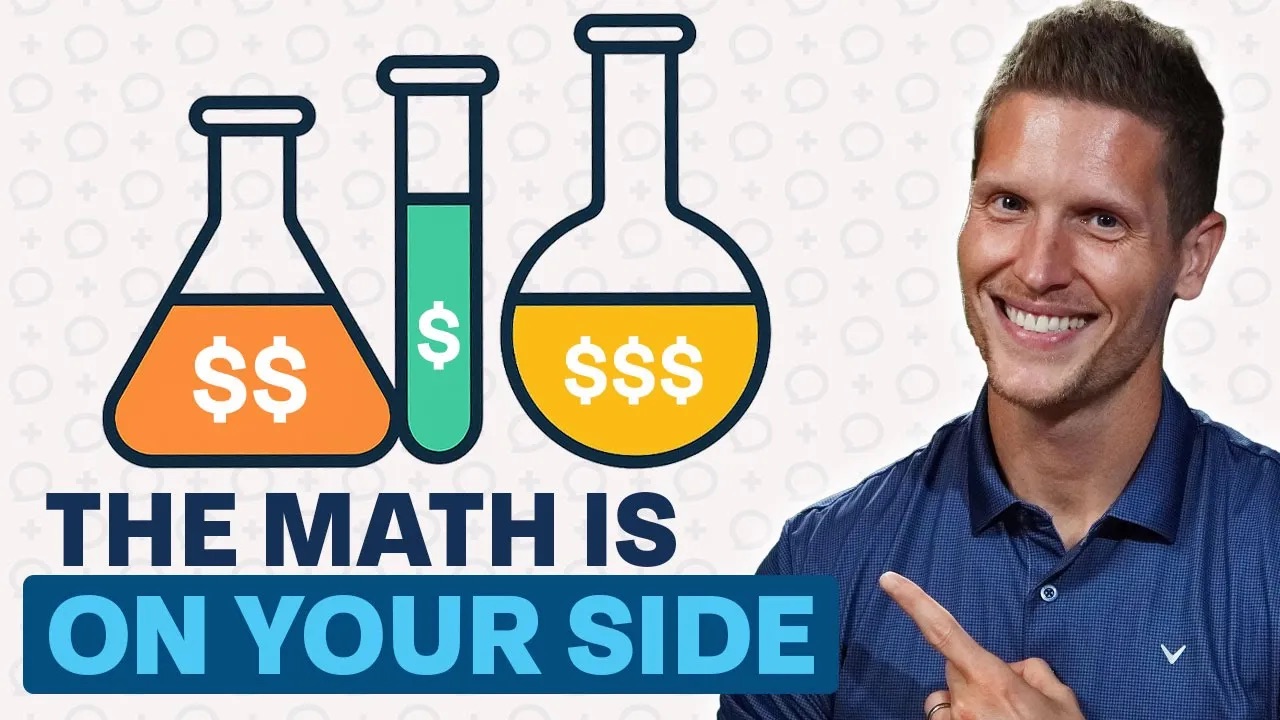Michelle has a question for you guys. Giving is a major part of our finances. She says there are tax-advantaged ways to give significantly upon death, but how do we give as much as possible yearly while we're living?
So, Michelle, I love that. If you've done our
Financial Order of Operations course, you'll know that one of our ground rules, one of our step zeros, is generosity. We all, I think, can remember different parts of our life where someone or some entity or something was generous, and it allowed an opportunity for us that may not have existed previously. So one of the things we get to do as we have success is give back and pour that back into the world and the people around us, which I think is awesome. But just because we're charitably-minded and we want to be generous, I want to give, doesn't mean that we have to do it inefficiently. Your question is one we often get because somebody might have a big income year. They might sell a business, sell a piece of property, sell a piece of land, and they want to make large charitable contributions or they want to make a big contribution. I'm going to tell you the first thing to watch out for because we've seen this happen before in the past. You want to make sure you understand how the tax code treats charitable contributions because you may be surprised to find out that not all of your charitable contribution may be deductible. If you give too much, it's only deductible up to a certain percentage of your income, I want to say, and I'm going off memory here. Tax man, you can correct me if I'm wrong. If you're gifting cash, I think you can only take a deduction of up to 50% of your income, and if you're gifting property or appreciated securities, it only goes up to 30%. So, you want to make sure that, maybe you got a big inheritance, and from that big inheritance, you want to give a big charitable gift, be careful not to give too much in one year, or else you might not be able to get that deduction. You may want to stagger your gifting over a number of years so that you can take advantage of that deduction. Now, Brian, save that. Save the scenario where someone wants to give a big annual gift because of something big that happened. What are some ways that Michelle can give very generously in a large way on an annual and ongoing basis?
Yeah, Michelle, I love this question. I wrote down three big things. The one thing I will tell you that I hate is that there is this perception that there's more opportunity when you die because I think if you can actually be generous while you're alive, you get to enjoy a heck of a lot more of seeing the fruit of your blessings and resources out and about instead of waiting until you die. I encourage you because there are plenty of opportunities. The government does encourage you to give while you're still active. You don't have to wait until death to be generous. That's why we make it step zero; it's actually part of the ground rules of the
Financial Order of Operations because we want you to be generous throughout. I wrote down three things because this is what Bo is alluding to.
Number one appreciated asset is if you have appreciated assets. If you've been investing and you've been successful, you're blessed with the fact that your fruits are growing. Then you should pay attention to those appreciated assets because the government gives you a win-win opportunity. The fact that you could not only give money to charities with these appreciated assets, but they get to take the full fair market value on the day you give the contribution. You don't have to pay income taxes on that gain, so you could actually skirt paying the income taxes. So, if you bought something for ten thousand and now it's worth twenty thousand, I used to give Tesla as an example, but that's kind of gone down the drain a little bit. But seriously, there are lots of equities, long term, and even if it was Tesla, maybe if you bought it in 2018, you still were up like 400 percent. Elon, don't get mad at me, but it is one of those things. If you have appreciated securities, you could put the money in, and you don't pay. So, you put ten thousand dollars, and it's that ten thousand dollars of gain because the charities get the twenty thousand dollar benefit. You're not going to pay income tax on that, and you get the full charitable deduction on your tax return at the twenty thousand dollar higher fair market value. That's a win-win.
Now, a lot of people, if you're a tither or you're a person that wants to give on a consistent basis, I think you can turbocharge this strategy. This is financial mutant territory here. The fact that what you can do is if you're going to give consistently, you can give out of those appreciated accounts. But then you can also, instead of giving cash naturally to these organizations, you can now have that money go back into your investment account that you just gave out of to replenish the investment and buy right back into a lot of these securities. Because what that does over the long term, it allows you to replenish your assets to keep growing. It also is pushing your basis higher so in case you had an emergency or an investment opportunity of a lifetime, you actually have easier access to your money.
Number two, what are your long-term plans? Because I always, if you are a person that, you know, this is very important, and you do have appreciated assets, you can start focusing on the why of what you want to do. Because just like retirement is a big goal, if you have big aspirations with your charitable giving, because I know, Bo, I'm not going to put you on the spot, but I know I've always been impressed. You've told me like I know you've had thoughts about seeding churches. You've had thoughts about doing, and that's built into part of your plan, absolutely. I think that having that long-term mindset is tremendously valuable.
And then there is a next level. Just like we talk about taking the relationship to the next level, if you're trying to figure out, can I stress test my retirement? Can I make sure I'm optimizing? I've only retired once. You guys have retired people thousands of times. It's the same way with the next level type of charitable giving. Because there are CRATs, CRUTs, there are all kinds of funny acronyms that you can use. We're not going to cover that in a podcast or YouTube because guess what, there'd be six of you who would watch it. But it is something that once you graduate to the next level, there are ways that you can do this in an even more turbocharged way.
If you want to know how powerful your dollar bills are, check out our
Wealth Multiplier deliverable here.













